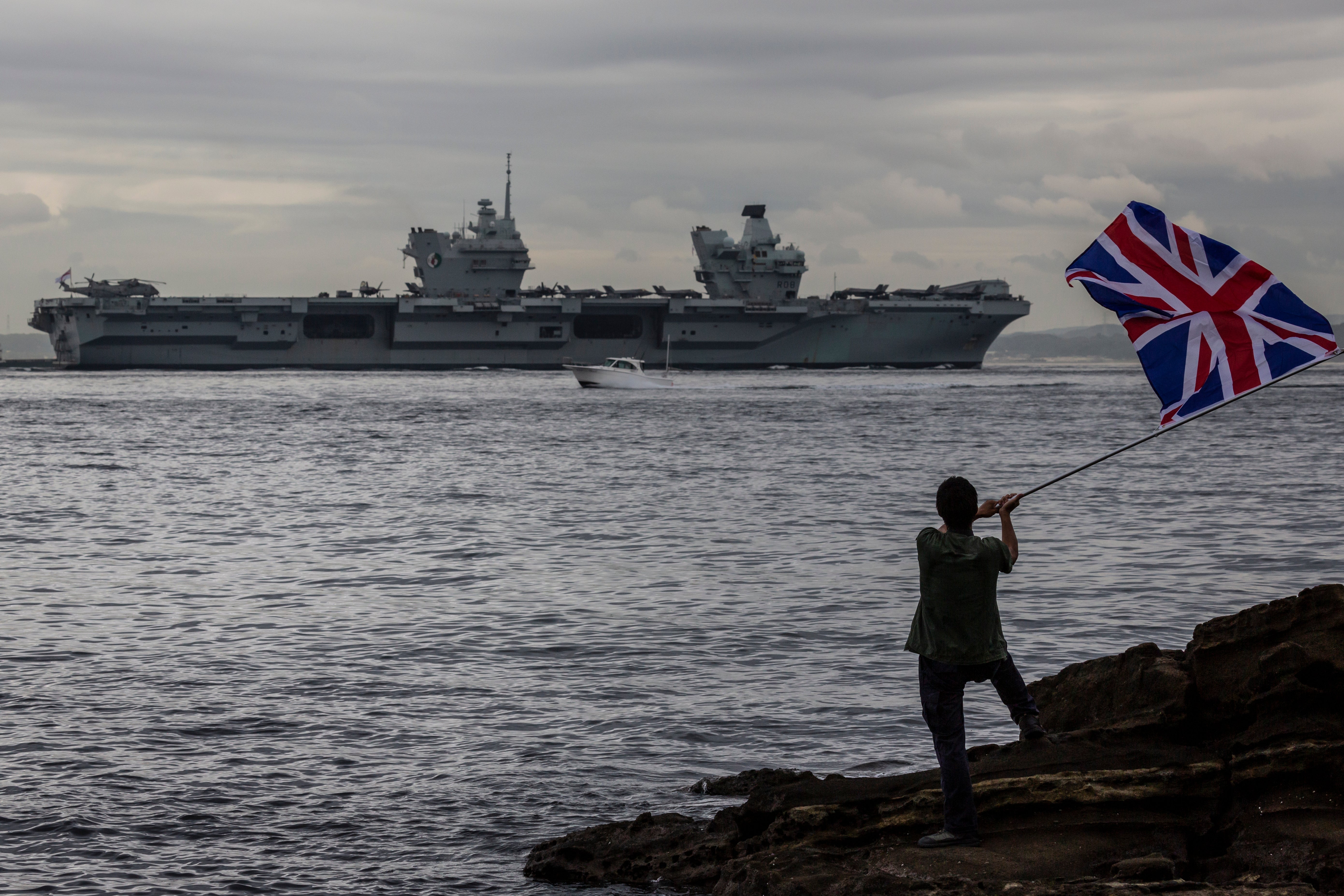British warships could be sent to protect freighters carrying Ukrainian grain amid fears of food shortages
Talks being held about ‘alliance of the willing’ in plan to lift Russian blockade

Your support helps us to tell the story
From reproductive rights to climate change to Big Tech, The Independent is on the ground when the story is developing. Whether it's investigating the financials of Elon Musk's pro-Trump PAC or producing our latest documentary, 'The A Word', which shines a light on the American women fighting for reproductive rights, we know how important it is to parse out the facts from the messaging.
At such a critical moment in US history, we need reporters on the ground. Your donation allows us to keep sending journalists to speak to both sides of the story.
The Independent is trusted by Americans across the entire political spectrum. And unlike many other quality news outlets, we choose not to lock Americans out of our reporting and analysis with paywalls. We believe quality journalism should be available to everyone, paid for by those who can afford it.
Your support makes all the difference.The Royal Navy could be sent to the Black Sea unders plans to create a “protective corridor” to allow ships carrying Ukrainian grain to leave the country.
The UK is in talks with allies including Lithuania about the formation of an “alliance of the willing” to help lift the Russian blockade of Ukraine’s ports. It is thought that Egypt and other countries reliant on Ukrainian produce could also help.
If this proved possible, the waters near the Ukrainian coast would need to be de-mined before exports could resume.
Millions of tonnes of Ukrainian grain which would usually be shipped around the world remain in silos across the country, sparking fears the global food crisis could worsen. Concern has also grown due to lower than expected crop yields in nations such as India.
The Lithuanian foreign minister Gabrielius Landsbergis, who met his British counterpart Liz Truss in London earlier this week, stressed that Ukraine must be allowed to export its grain to ease food insecurity.
“Russian blockade of Odesa can and has to be removed. Ukraine should be allowed to feed the world,” he said on Monday.
On Tuesday, the British transport secretary Grant Shapps expressed similar concerns.
"We’re looking at all the different options … there are lots of different potential ways to get grain and other goods out of the country," he said.
"It’s absolutely essential that we do, otherwise there could be a lot of hunger and [even] famine."
Last week, David Beasley, the director of the UN World Food Programme, urged Russian president Vladimir Putin to lift his naval blockade “so that we can feed the poorest of the poor and avert famine”.
Russia, however, has indicated that it will not consider taking this step unless western sanctions against it were reviewed.


Join our commenting forum
Join thought-provoking conversations, follow other Independent readers and see their replies
Comments